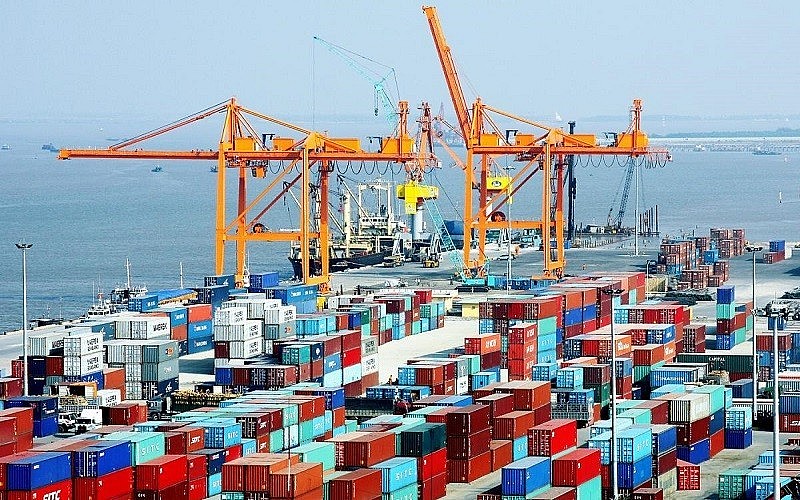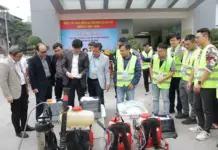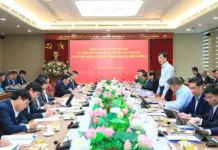 |
| Illustrative image. |
Market Share of Vietnamese Goods Accounts for 2% in the EU Market
Nguyen Thai Chuyen, lecturer in International Business at RMIT University, stated that products such as phones and components, computers, shoes, machinery and spare parts, textiles, coffee, iron, steel, and seafood have experienced significant growth.
Iron and steel saw a growth of over 844% in 2021 compared to 2020 and over 634% in 2022 compared to 2020.
 |
| Nguyen Thai Chuyen, lecturer in International Business at RMIT University. |
However, phones and components saw a decrease of 9.5% in 2021 and 15.7% in 2022, respectively, compared to the previous year. This decrease is mainly due to the lack of input materials caused by the closure of the Chinese market due to Covid-19 and the tension between Russia and Ukraine leading to a global supply chain crisis.
According to Trading Economics, the market share of Vietnamese goods in the EU market is only about 2%. The value and benefits that businesses gain from exporting activities are still limited, as the Vietnamese brand is not widely known in European countries.
Despite relatively good growth, key export items of Vietnam such as vegetables, fruits, seafood, and rice have not achieved the expected results and account for only a small portion of the total value of EU imports. Commodities like cashews and paper products have not shown signs of growth after the implementation of the EVFTA.
About 40% of Businesses Understand EVFTA’s Commitments
The EU market is demanding with strict quality standards, safety requirements for industrial goods, hygiene and quarantine standards for imported agricultural products and food. This poses an obstacle for Vietnamese enterprises as most raw materials for production are imported from China and other ASEAN countries, making it difficult to control quality standards.
A survey by the Vietnam Chamber of Commerce and Industry (VCCI) on businesses’ perception of the EVFTA reveals that while nearly 94% of enterprises have heard or know about the agreement, only about 40% of them understand or fully understand its commitments to their businesses. FDI enterprises have the highest rate of understanding at 43%.
Businesses have not fully utilized the advantages of the EVFTA to expand to other member countries. Many Vietnamese enterprises mainly trade with 5-6 countries out of the 27 member states of the EU, limiting trade with other countries.
Utilize Benefits from the EVFTA
Europe is a meticulous market with strict commodity standards. To access this market, businesses need to make efforts to change and adapt, while taking advantage of support from regulatory bodies and associations.
They should focus on improving management capacity, human resource quality, technological innovation, brand building and development, as well as establishing long-term business strategies to meet the needs and requirements of this market.
“Exporting businesses need to improve the quality of products and services, apply high safety and environmental protection standards required by the EU, diversify sources of consumption, and minimize the risk of dependence on a single export market. They need to follow consumer trends, enhance creativity, and interact directly, continuously, and quickly with customers,” said Chuyen.
European businesses pin hope on EVFTA
The European Parliament has ratified the EU-Vietnam Free Trade Agreement (EVFTA) and the EU-Vietnam Investment Protection Agreement (EVIPA). The ratification is believed to create a breakthrough in trade investment cooperation between European firms and Vietnamese partners after the deals take effect.
EVFTA poses challenges to Vietnamese agricultural products
Since the EVTFA was approved, experts have been analysing the opportunities for Vietnam to penetrate deeper into the high-value foreign markets. However, the implementation of the deal also poses many challenges to Vietnamese agricultural products. Besides strict standards from the European Union market, competitive pressure in the domestic market is also a big issue.








